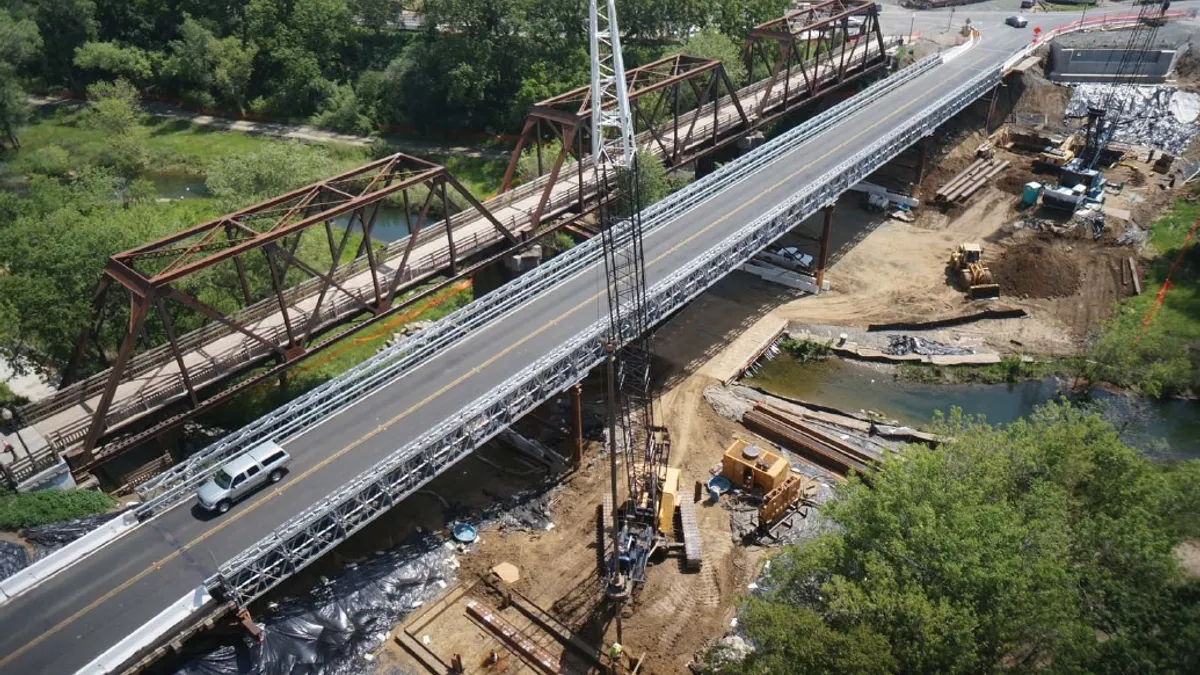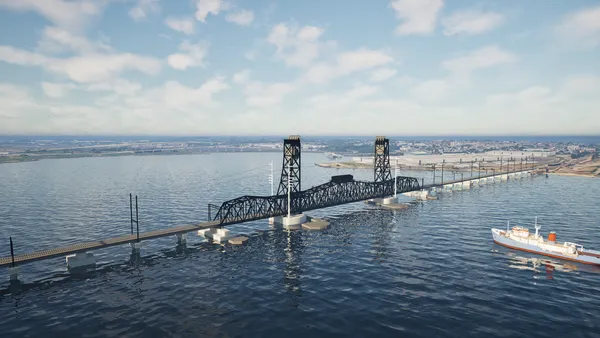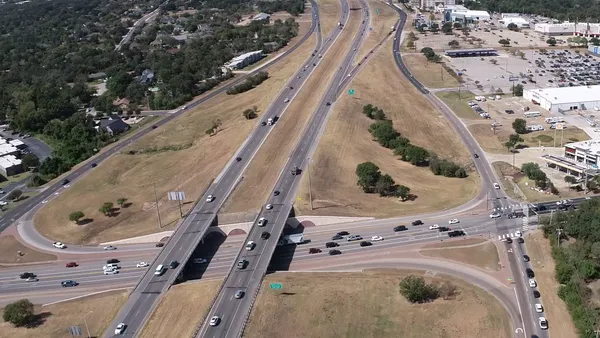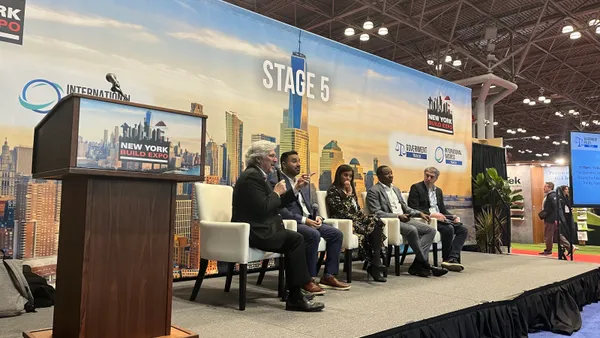Dive Brief:
- A five-state consortium headed by a research center at North Dakota State University was awarded a Department of Transportation university competition grant, which it will use to develop safer roads and bridges, according to Inforum.
- The consortium covers approximately 408,000 miles of public roads and nearly 25,000 bridges in North Dakota, South Dakota, Wyoming, Utah and Colorado.
- Annual funding of $2.5 million for the next five years will help researchers develop ways to improve and preserve infrastructure from the effects of long haul transportation and extreme weather.
Dive Insight:
In addition to infrastructure resilience from extreme weather and heavy transport, the five-state research consortium led by NDSU will also focus on safety issues, including technologies to improve infrastructure shared by over-the-road haulers and passenger vehicles. The research group also intends to look at new materials for bridge construction and the use of sensors to monitor bridge deterioration.
Those efforts should help advance the development of smart materials and smart infrastructure. They’d join other researchers exploring improved infrastructure, such as those at the University of Delaware and the Multidisciplinary Center for Earthquake Engineering Research in Buffalo, NY, who are calling for sensors to monitor the estimated 58,495 structurally deficient bridges in the U.S. An array has already been installed at Michigan’s Mackinac Bridge that includes self-powering sensors imbedded into concrete to communicate data on structural stress, and strain to a command center for analysis.
Researchers at the University of Nebraska are also exploring ways to incorporate carbon and metal aggregates into concrete for conductivity to melt ice and snow from roadways, all of which plays into an infrastructure resiliency market estimated by a recent MarketsandMarkets analysis to reach $145 billion by 2021.













